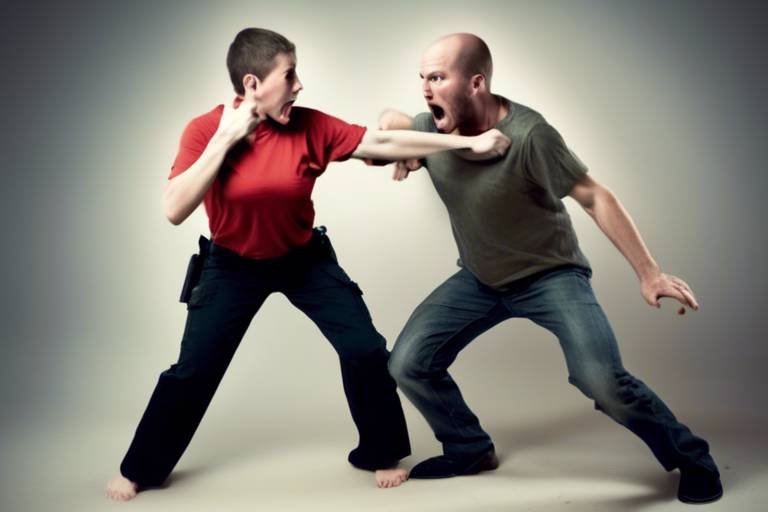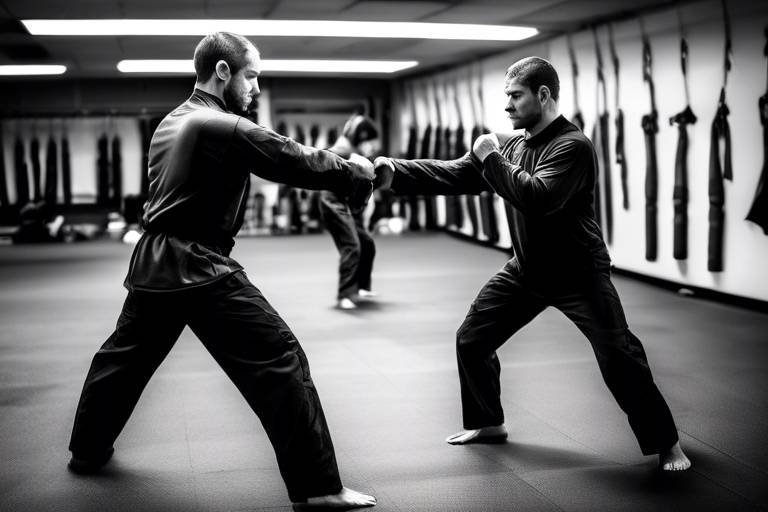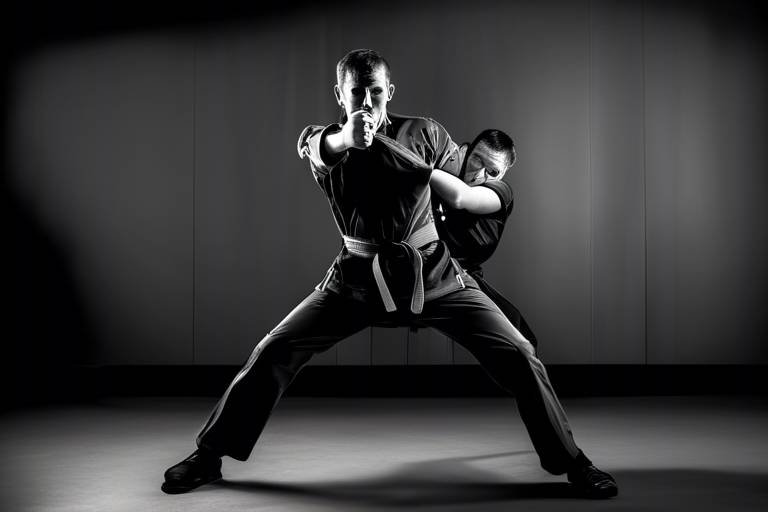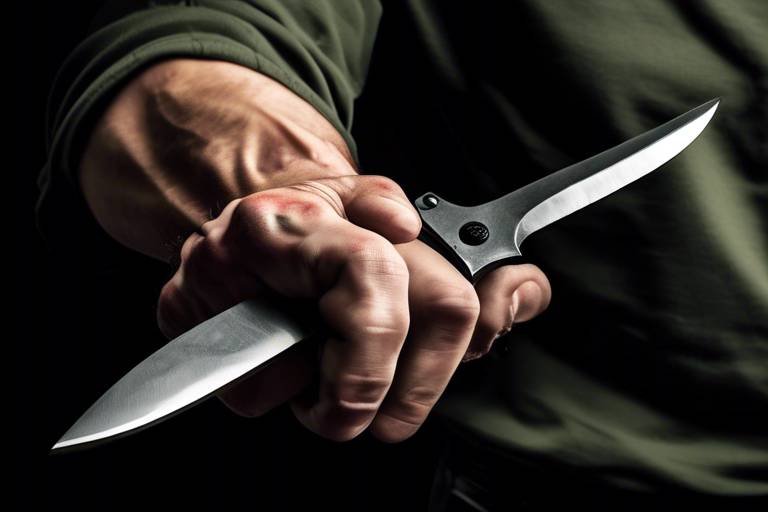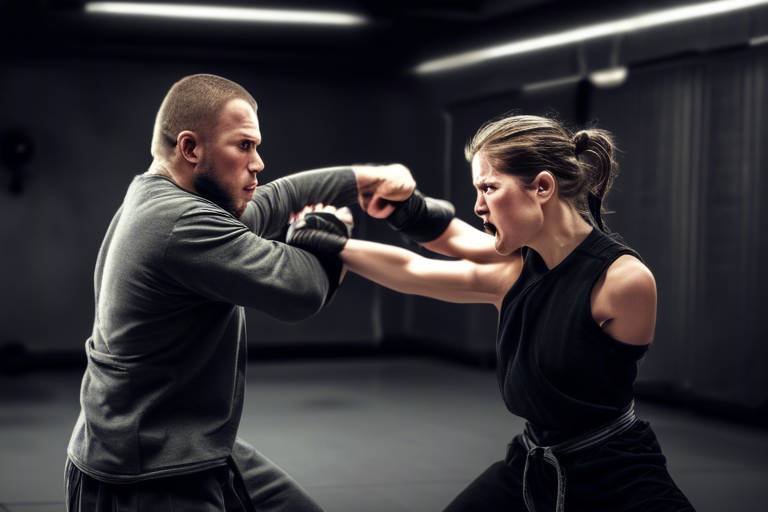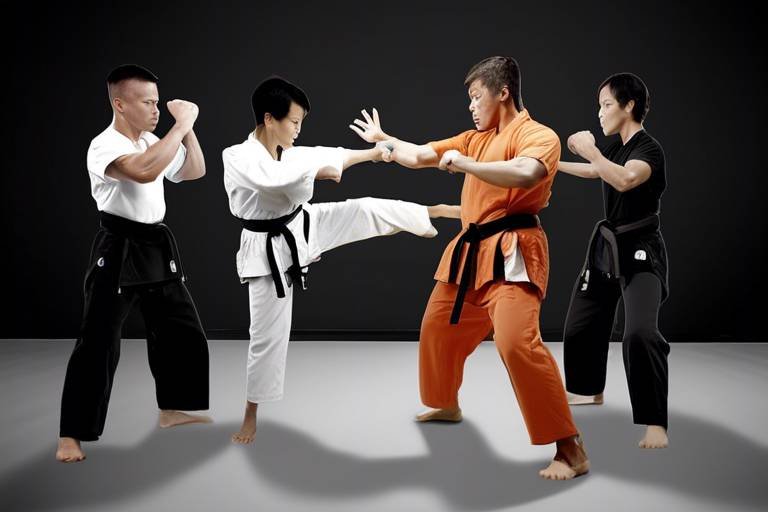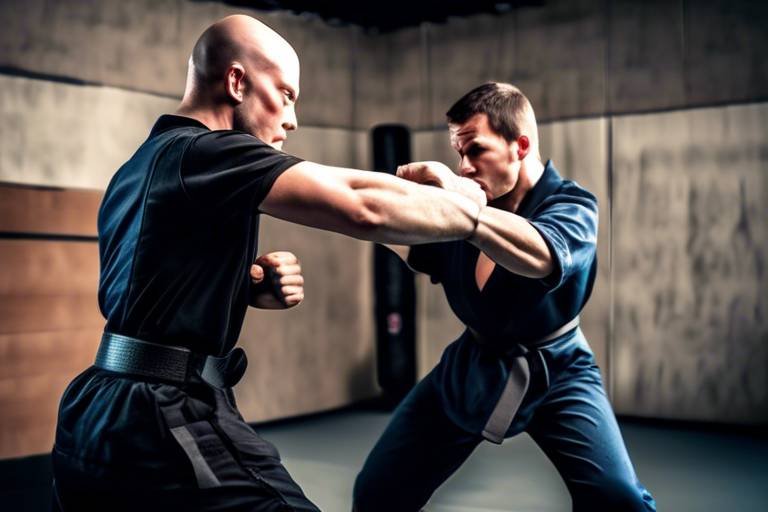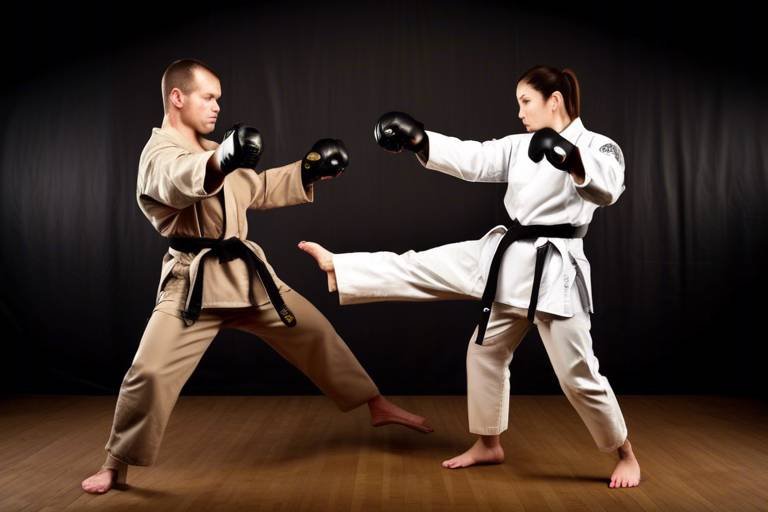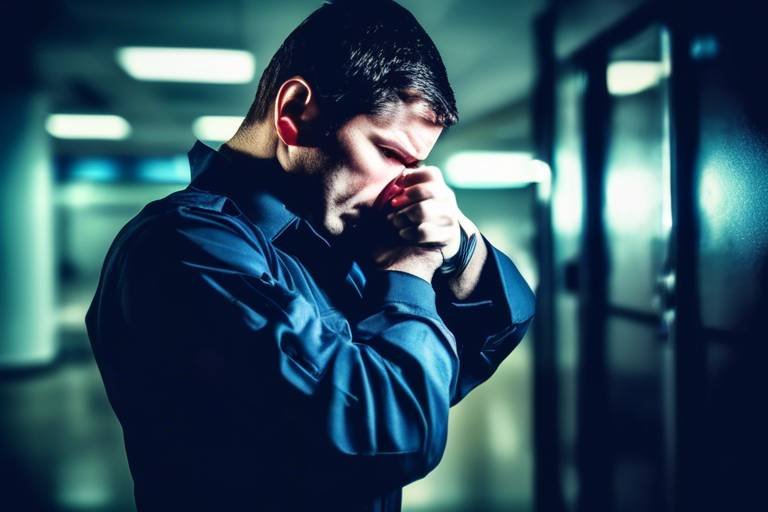Anxiety and Self-Defense Training - A Deep Dive into Their Connection
In today's fast-paced world, anxiety has become a common struggle for many individuals. It can feel like a weight on your chest, making even the simplest tasks feel overwhelming. But what if there was a way to not only manage anxiety but also empower yourself physically and mentally? This is where self-defense training comes into play. By engaging in martial arts, individuals can find a unique method to cope with anxiety while boosting their confidence. In this article, we will explore the intricate relationship between anxiety and self-defense training, uncovering how martial arts can serve as a powerful tool for personal empowerment and mental well-being.
Understanding anxiety is crucial in recognizing its impact on individuals. Anxiety is more than just feeling nervous; it's a complex emotional response that can manifest in various ways. Physiologically, it triggers the body's fight-or-flight response, leading to symptoms such as increased heart rate, sweating, and muscle tension. Psychologically, it can create a sense of dread and worry that permeates daily life, making it challenging to focus on tasks or enjoy social interactions. Recognizing the symptoms of anxiety is the first step toward managing it effectively. Common symptoms include:
- Excessive worrying
- Restlessness or feeling on edge
- Difficulty concentrating
- Sleep disturbances
By understanding these symptoms, individuals can begin to seek out effective strategies, such as self-defense training, to help alleviate their anxiety.
Self-defense training encompasses various techniques aimed at personal safety and empowerment. It is not just about learning how to fight; it's about developing skills that can enhance your confidence and awareness in everyday situations. Self-defense disciplines vary widely, from traditional martial arts to modern combat systems. Each discipline has its own objectives, but they all share a common goal: to empower individuals physically and mentally. Whether it's through learning to recognize potential threats or mastering techniques to protect oneself, self-defense training can be a transformative experience.
Exploring various self-defense techniques, we find popular styles such as:
- Krav Maga: A practical and efficient self-defense system developed for the Israeli military, focusing on real-world situations.
- Brazilian Jiu-Jitsu: A grappling-based martial art that emphasizes technique over strength, allowing smaller individuals to defend against larger attackers.
- Muay Thai: Known as the "Art of Eight Limbs," this striking art utilizes fists, elbows, knees, and shins for effective self-defense.
Each style offers unique approaches to self-protection and personal empowerment, allowing individuals to choose the one that resonates with them the most.
The physical advantages of self-defense training are numerous. Training regularly can lead to improved strength, agility, and coordination, which are essential for overall fitness. These physical benefits not only contribute to better performance in self-defense situations but also enhance everyday activities. Imagine feeling more agile and strong as you navigate through life—whether it's carrying groceries or simply getting out of a chair. This newfound strength can significantly boost your confidence, making you feel more capable in various situations.
Focusing on the mental aspects, self-defense training is a powerful tool for enhancing focus, discipline, and resilience. The practice requires concentration and quick decision-making, which can translate into improved mental clarity in daily life. Additionally, the discipline learned through martial arts can help individuals develop a resilient mindset, enabling them to face challenges head-on instead of succumbing to anxiety. It's like building a mental fortress; the more you train, the stronger and more resilient you become.
There is a direct link between anxiety and self-defense training. Engaging in martial arts can alleviate anxiety symptoms while instilling a sense of safety and control. When you learn self-defense techniques, you not only equip yourself with the skills to protect yourself but also gain a sense of empowerment. This empowerment can significantly reduce feelings of helplessness often associated with anxiety. Imagine walking into a room with your head held high, knowing you have the tools to handle potential threats—this shift in mindset can be life-changing.
Confidence is a key outcome of self-defense training. Mastering self-defense techniques can empower individuals, significantly reducing anxiety and fostering a more assertive mindset in various life situations. As you progress through your training, you may find yourself standing taller, speaking louder, and engaging more in social situations. This newfound confidence can spill over into other areas of your life, from your career to your relationships, creating a positive feedback loop that further enhances your mental well-being.
Understanding how to apply self-defense skills in real-life scenarios is vital. Situational awareness is the first step in personal safety. By being aware of your surroundings, you can identify potential threats before they escalate. Practical strategies for utilizing self-defense techniques effectively can enhance personal safety and reduce anxiety. For instance, practicing de-escalation techniques can help you navigate conflicts without resorting to physical confrontation, allowing you to maintain control over your emotional responses.
In conclusion, the transformative effects of self-defense training on anxiety management and personal empowerment cannot be overstated. By engaging in martial arts, individuals can develop not only the physical skills needed for self-protection but also the mental fortitude to handle life's challenges. If you're looking for a way to enhance your mental and physical well-being, consider giving self-defense training a try. It might just be the key to unlocking a more confident, empowered version of yourself.
Q: Can self-defense training help with anxiety?
A: Yes! Self-defense training can empower individuals, boost confidence, and provide tools to manage anxiety effectively.
Q: What is the best self-defense style for beginners?
A: Styles like Krav Maga or Brazilian Jiu-Jitsu are often recommended for beginners due to their practical applications and focus on real-world scenarios.
Q: How often should I train to see benefits?
A: Consistency is key! Training at least twice a week can yield significant physical and mental benefits over time.

The Nature of Anxiety
Anxiety is more than just feeling nervous or worried; it's a complex emotional state that can significantly impact daily life. To truly understand anxiety, we need to explore both its psychological and physiological aspects. At its core, anxiety is a natural response to stress, a signal from our body that something might be wrong. However, for many individuals, this response can become overwhelming and persistent, leading to various symptoms that can interfere with daily functioning.
Psychologically, anxiety can manifest in several ways. Individuals may experience racing thoughts, a sense of impending doom, or excessive worry about everyday situations. These feelings can lead to avoidance behaviors, where one might steer clear of certain places or activities that trigger their anxiety. This avoidance can create a vicious cycle, making the anxiety worse over time.
Physiologically, anxiety triggers a response in our body often referred to as the "fight or flight" response. This response is characterized by an increase in heart rate, rapid breathing, and heightened awareness. While these reactions are beneficial in true danger, they can become problematic when triggered by non-threatening situations. Here are some common symptoms associated with anxiety:
- Increased heart rate
- Shortness of breath
- Muscle tension
- Excessive sweating
- Fatigue
- Sleep disturbances
These symptoms can lead to significant distress and impairment in social, occupational, or other important areas of functioning. Imagine trying to focus on a conversation while your heart races and your mind is clouded with worries; it’s exhausting! Understanding these symptoms is the first step toward managing anxiety effectively.
Moreover, anxiety can also have a ripple effect on one's physical health. Chronic anxiety may lead to conditions such as hypertension, digestive issues, and even weakened immune function. This intertwining of mental and physical health highlights the importance of addressing anxiety not just as a mental health issue but as a holistic concern that encompasses the whole person.
In conclusion, recognizing the nature of anxiety is crucial for anyone looking to manage it effectively. By understanding its psychological and physiological roots, individuals can take proactive steps toward finding relief. Whether through therapy, medication, or lifestyle changes, acknowledging anxiety as a legitimate and impactful condition is the first step toward reclaiming control over one's life.
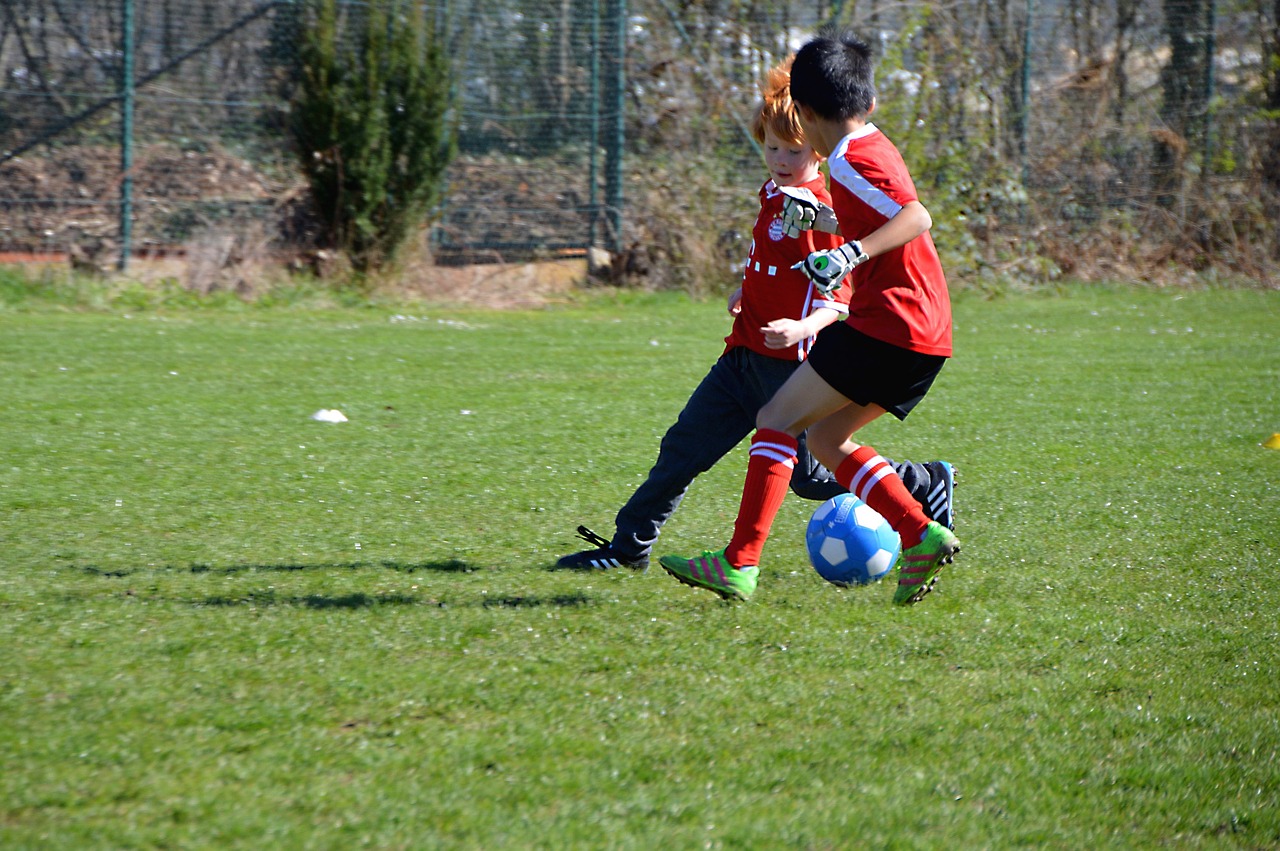
Self-defense training is more than just learning how to throw a punch or execute a kick; it’s a comprehensive approach to personal safety that encompasses physical techniques, mental preparedness, and emotional resilience. In today's world, where unpredictability often looms around every corner, understanding the dynamics of self-defense can be a game-changer. Imagine walking down the street, feeling a sense of empowerment rather than anxiety, knowing you have the skills to protect yourself if necessary. That’s the essence of self-defense training.
At its core, self-defense training aims to equip individuals with the tools to protect themselves in threatening situations. This can range from simple techniques to complex strategies that require a deep understanding of human behavior and conflict resolution. The beauty of self-defense is that it caters to people of all ages, backgrounds, and fitness levels, making it an inclusive practice that fosters community and personal growth.
Self-defense training can be categorized into various disciplines, each with its own unique philosophy and techniques. Here are some of the most popular styles:
- Krav Maga: Originating from Israel, this martial art focuses on real-world situations and emphasizes practical techniques that are easy to learn and apply. Its no-nonsense approach makes it a favorite for many.
- Brazilian Jiu-Jitsu: This grappling-based martial art teaches individuals how to defend against larger opponents by using leverage and technique. It’s not just about strength; it’s about strategy.
- Muay Thai: Known as the "Art of Eight Limbs," this striking art utilizes punches, kicks, elbows, and knees, making it a versatile and effective form of self-defense.
Each of these disciplines offers a unique perspective on self-defense, allowing practitioners to choose a style that resonates with them. Whether you prefer striking, grappling, or a combination of both, there’s a self-defense training program that fits your needs.
Beyond physical techniques, self-defense training also emphasizes mental preparedness. Participants learn to assess situations, recognize potential threats, and react appropriately. This mental acuity is invaluable, as it enables individuals to avoid confrontations before they escalate. Additionally, the emotional component of self-defense training cannot be overlooked. The confidence gained from mastering self-defense techniques translates into various aspects of life, fostering a sense of security and reducing anxiety.
In summary, self-defense training is a multifaceted approach to personal safety that empowers individuals both physically and mentally. Whether you’re looking to enhance your fitness, build confidence, or simply learn how to protect yourself, self-defense training offers valuable skills that extend far beyond the dojo.
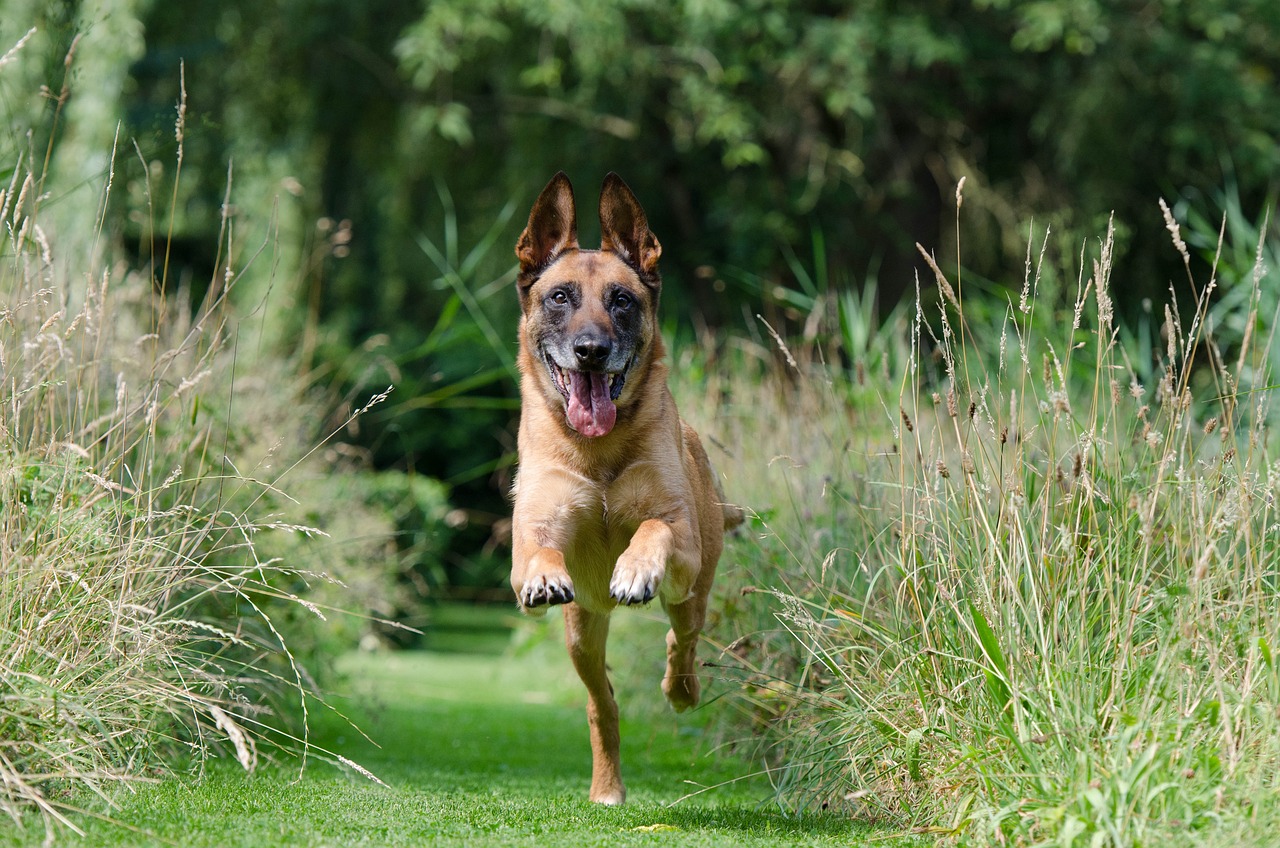
Types of Self-Defense Techniques
When it comes to self-defense, it's not a one-size-fits-all scenario. Different techniques cater to various situations, personal preferences, and physical capabilities. Understanding these differences can significantly enhance your ability to protect yourself effectively. Let's dive into some of the most popular self-defense styles that are making waves in gyms and studios around the world.
Krav Maga is one of the most recognized self-defense systems globally, originally developed for the Israeli military. This technique emphasizes real-world situations and practical defenses against armed and unarmed attackers. What sets Krav Maga apart is its focus on instinctive movements, allowing individuals to react quickly under pressure. The training often involves scenarios that mimic real-life threats, making it an effective choice for those looking to build confidence in their ability to handle dangerous situations.
Next up, we have Brazilian Jiu-Jitsu (BJJ). This martial art focuses primarily on ground fighting and submission grappling. BJJ teaches you how to control an opponent through leverage and technique, allowing a smaller person to defend against a larger attacker. The beauty of BJJ lies in its ability to promote strategic thinking and problem-solving under stress. Practitioners often engage in sparring sessions, which not only improve their skills but also help reduce anxiety by fostering a sense of control and competence.
Another powerful technique is Muay Thai, also known as the "Art of Eight Limbs." This striking art utilizes punches, kicks, elbows, and knees, making it a comprehensive form of self-defense. Muay Thai training develops not just physical strength and endurance but also mental toughness. The rigorous training sessions can help alleviate anxiety, as practitioners learn to channel their energy and focus into their movements. Plus, the community aspect of Muay Thai often leads to strong bonds among practitioners, creating a supportive environment for personal growth.
While these are just a few examples, there are many other self-defense techniques worth exploring, such as Boxing, Judo, and Kickboxing. Each discipline offers unique benefits and approaches to self-defense, allowing individuals to choose a style that resonates with them. Whether you're looking for a practical way to defend yourself or simply want to enhance your fitness routine, exploring these options can be both empowering and rewarding.
In summary, understanding the various types of self-defense techniques can open up a world of possibilities for personal safety and self-empowerment. Each style brings its own flavor, allowing individuals to find what works best for them. So, if you’re considering taking the plunge into self-defense training, why not explore these options and see which one sparks your interest?
- What is the best self-defense technique for beginners? While it depends on personal preference, Krav Maga is often recommended for beginners due to its focus on practical self-defense scenarios.
- Can self-defense training help with anxiety? Absolutely! Many individuals find that the physical activity and skill mastery involved in self-defense training can significantly reduce anxiety levels.
- How long does it take to become proficient in self-defense? Proficiency varies by individual, but consistent practice over several months can lead to noticeable improvements in skills and confidence.
- Is self-defense training safe? Yes, when conducted under proper supervision and with appropriate safety measures, self-defense training is generally safe and can be a fun way to learn valuable skills.
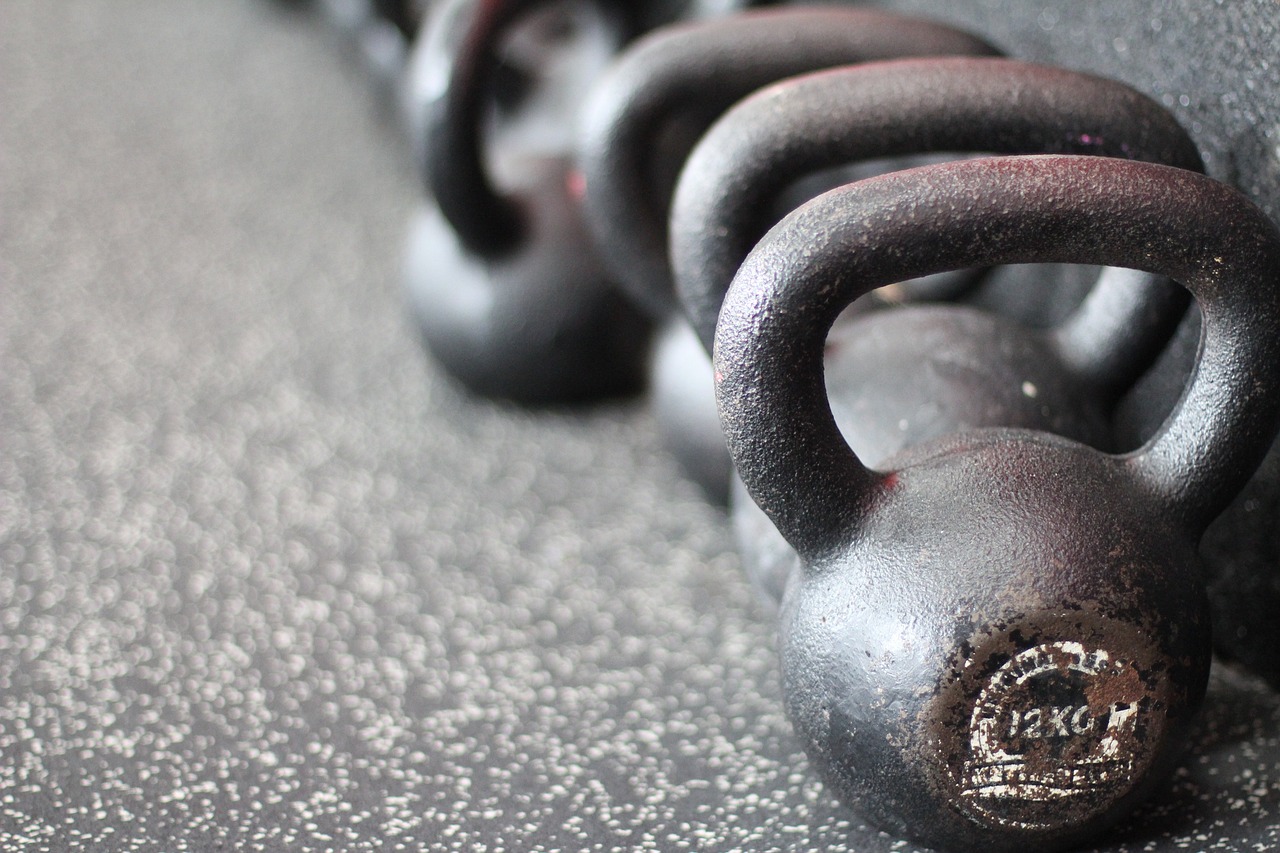
Physical Benefits of Training
When it comes to self-defense training, the physical benefits are as striking as a well-executed roundhouse kick. Engaging in martial arts not only equips you with essential skills for personal safety but also transforms your body in ways you might not expect. Think of your body as a finely tuned machine; the more you train, the more efficient and powerful it becomes. From enhanced strength to improved coordination, the advantages are numerous and significant.
One of the most immediate benefits of self-defense training is the increase in strength. As you practice various techniques, your muscles adapt and grow, helping you to perform better in both training and real-life situations. This newfound strength can make you feel more capable and ready to face challenges, reducing feelings of vulnerability that often accompany anxiety. Imagine lifting weights; with every repetition, you’re not just building muscle but also fortifying your confidence.
Additionally, self-defense training dramatically improves agility and coordination. These skills are crucial not just for martial arts but for everyday activities as well. Whether you’re dodging an unexpected obstacle on the street or simply playing with your kids, enhanced agility allows for quicker reactions and smoother movements. A study conducted by the Journal of Sports Science found that participants in martial arts training showed a significant increase in their agility scores compared to those who did not train.
Moreover, the cardiovascular benefits of self-defense training cannot be overlooked. Engaging in high-intensity drills and sparring sessions elevates your heart rate, leading to improved endurance and overall heart health. This is particularly beneficial for those who may experience anxiety, as physical activity is known to release endorphins—those feel-good hormones that can help combat stress and elevate your mood.
Let’s not forget about the impact on flexibility. Many self-defense techniques require a good range of motion, and regular training can significantly enhance your flexibility over time. Not only does this reduce the risk of injury, but it also contributes to a more fluid and graceful movement pattern, making you feel more in control of your body.
In summary, the physical benefits of self-defense training are multifaceted and profound. By improving strength, agility, endurance, and flexibility, you’re not just preparing yourself for potential confrontations; you’re also investing in your overall health and well-being. The journey of self-defense training is as much about personal empowerment as it is about physical fitness, creating a holistic approach to managing anxiety and enhancing your life. So, are you ready to step onto the mat and discover the transformative power of self-defense?
- What are the main physical benefits of self-defense training?
Self-defense training enhances strength, agility, coordination, endurance, and flexibility, contributing to overall fitness and personal safety.
- Can self-defense training help with anxiety?
Yes! Engaging in martial arts can alleviate anxiety symptoms by improving physical fitness, boosting confidence, and providing a sense of control.
- How often should I train to see physical benefits?
Training at least 2-3 times a week is recommended to experience noticeable improvements in strength and fitness.

Mental Benefits of Training
When it comes to self-defense training, the mental benefits are often just as significant as the physical ones. Engaging in martial arts isn’t just about learning how to throw a punch or execute a perfect kick; it’s a transformative journey that can reshape your mindset and emotional resilience. Imagine stepping onto the mat, feeling the weight of your worries lift as you focus on the movements and techniques. This shift in focus can be incredibly liberating, allowing you to temporarily escape the clutches of anxiety.
One of the most profound mental benefits of self-defense training is the enhancement of focus. In a world filled with distractions, honing your attention becomes a superpower. During training, you learn to concentrate on your body movements, the rhythm of your breath, and the dynamics of your opponent’s actions. This intense focus not only improves your skills but also translates into your everyday life, helping you manage stress and anxiety more effectively.
Moreover, self-defense training fosters a sense of discipline. Each session requires commitment and consistency, pushing you to set goals and work towards achieving them. This discipline creates a structured environment where you can channel your energy positively. As you progress, you develop a sense of accomplishment that boosts your self-esteem and reduces feelings of inadequacy that often accompany anxiety.
Another key mental benefit is the cultivation of resilience. In martial arts, you will inevitably face challenges—whether it's mastering a difficult technique or sparring with a more experienced partner. These experiences teach you how to bounce back from setbacks, reinforcing the idea that failure is merely a stepping stone to success. This newfound resilience can significantly impact how you approach challenges in your life outside the dojo, empowering you to face anxiety-inducing situations with a stronger mindset.
In addition, the camaraderie built within martial arts communities can provide a profound sense of belonging. Training alongside others fosters friendships and support networks, which can be invaluable for anyone struggling with anxiety. The shared experiences and encouragement from fellow practitioners can help alleviate feelings of isolation, making you feel more connected and less anxious.
| Mental Benefits | Description |
|---|---|
| Focus | Improves attention and concentration, helping manage stress. |
| Discipline | Encourages goal-setting and consistency, boosting self-esteem. |
| Resilience | Teaches how to recover from setbacks, enhancing coping skills. |
| Camaraderie | Builds a support network, reducing feelings of isolation. |
In conclusion, the mental benefits of self-defense training extend far beyond the dojo. They empower individuals to face their anxieties head-on, providing them with the tools to navigate life's challenges with confidence and composure. So, whether you’re looking to manage anxiety or simply want to feel more secure in your surroundings, consider stepping onto the mat. You might just discover a stronger, more resilient version of yourself.
- How does self-defense training help with anxiety?
Self-defense training helps manage anxiety by enhancing focus, discipline, and resilience, allowing individuals to feel more in control of their lives. - Can anyone participate in self-defense training?
Absolutely! Self-defense training is designed for individuals of all ages and fitness levels, making it accessible to everyone. - What should I expect during my first self-defense class?
In your first class, you can expect a warm welcome, an introduction to basic techniques, and a focus on safety and respect within the training environment. - How often should I train to see mental benefits?
Consistency is key. Training at least 2-3 times a week can help you experience significant mental and physical benefits.
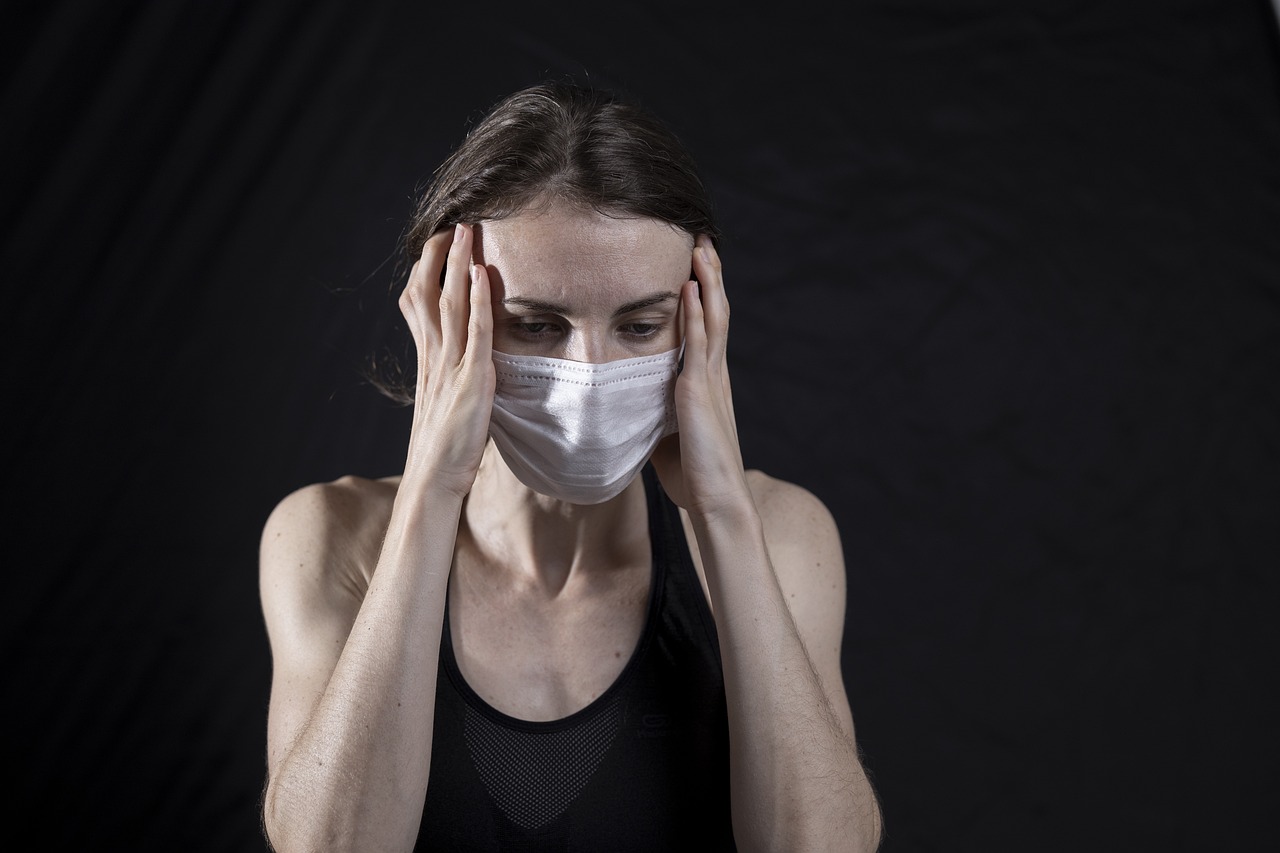
Connecting Anxiety and Self-Defense
When we think about anxiety, it often feels like a shadow lurking in the corners of our minds, whispering doubts and fears that can paralyze us. But what if I told you that there’s a way to combat this shadow, not just with therapy or medication, but through the empowering practice of self-defense? That's right! Self-defense training is not just about learning to throw a punch or execute a perfect kick; it’s about building a fortress of confidence and resilience that can help mitigate the effects of anxiety in our everyday lives.
Engaging in self-defense training can create a profound shift in how we perceive ourselves and our surroundings. Imagine stepping onto the mat for the first time, feeling the adrenaline rush through your veins as you learn new techniques. Each movement you master is like a brick being laid in the foundation of your self-esteem. This transformation isn’t just physical—it’s deeply psychological. The act of training helps to instill a sense of control over your body and environment, which can be incredibly liberating for someone struggling with anxiety.
Moreover, the connection between anxiety and self-defense training can be understood through several key factors:
- Increased Awareness: Self-defense teaches situational awareness, enabling individuals to recognize potential threats before they escalate. This proactive mindset helps reduce anxiety by empowering individuals to feel more in control of their surroundings.
- Physical Activity: Engaging in physical activity releases endorphins, the body's natural stress relievers. As you train, the stress of daily life begins to dissipate, replaced by a sense of accomplishment and well-being.
- Community Support: Many self-defense classes foster a sense of community. Being part of a group that shares similar goals can alleviate feelings of isolation often associated with anxiety.
Furthermore, self-defense training often incorporates breathing techniques and mindfulness practices, which are essential in managing anxiety. By focusing on your breath during training, you learn to center yourself, creating a mental space that can help you cope with anxiety in other aspects of your life. It’s akin to finding an oasis in the desert of stress—refreshing and revitalizing.
Ultimately, the connection between anxiety and self-defense is a powerful one. As you learn to defend yourself, you also learn to defend your mental health. You cultivate a mindset that embraces challenges rather than shying away from them. The next time anxiety tries to creep in, you’ll have the tools not just to fight back physically, but to face your fears with newfound strength and resilience. So, why not take that first step onto the mat? You might just discover a version of yourself that you never knew existed.
- Can self-defense training really help with anxiety?
Yes, many individuals find that the physical and mental benefits of self-defense training can significantly reduce anxiety levels. - What types of self-defense training are best for beginners?
Styles like Krav Maga and Brazilian Jiu-Jitsu are often recommended for beginners due to their practical applications and supportive training environments. - How often should I train to see improvements in anxiety?
Consistency is key! Training at least two to three times a week can lead to noticeable improvements in both physical skills and mental well-being.
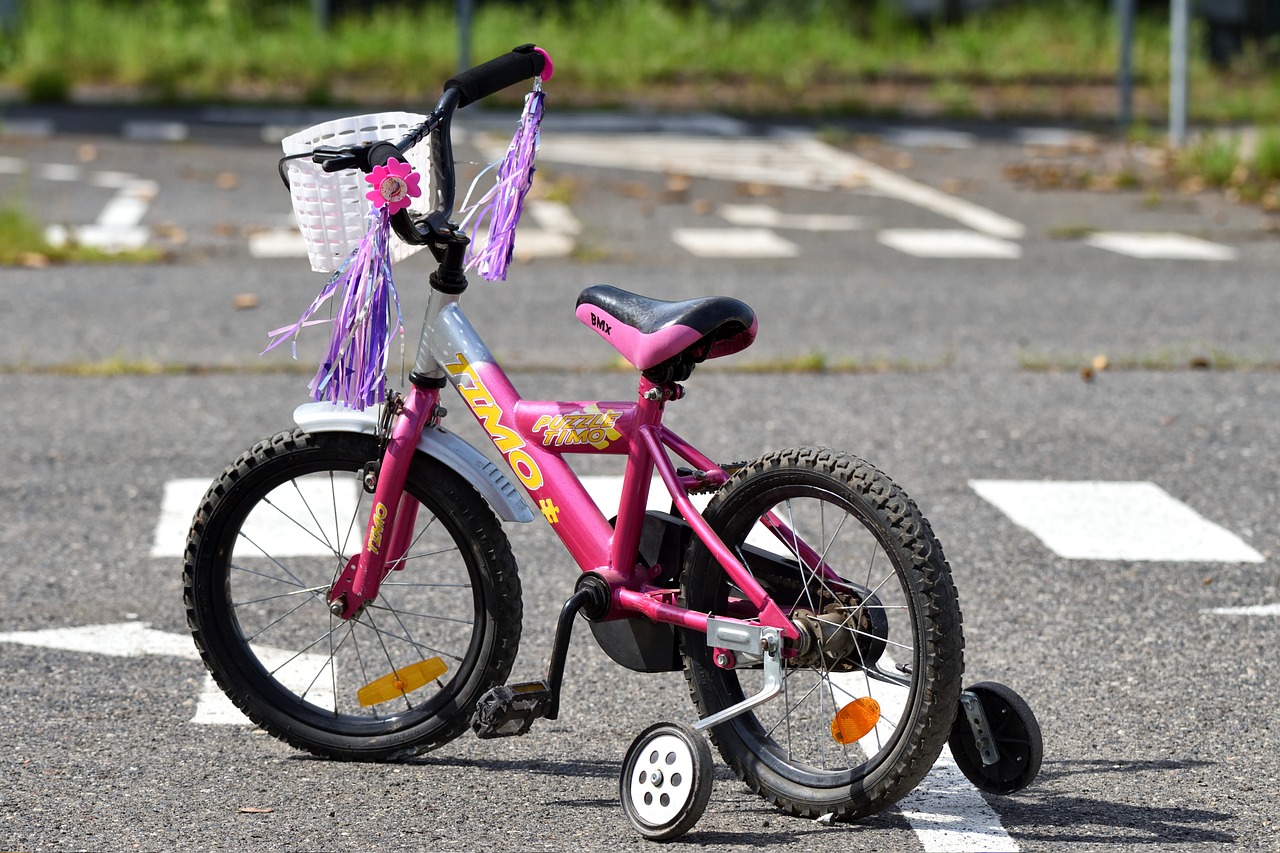
Building Confidence Through Training
When it comes to self-defense training, one of the most significant benefits that participants experience is an incredible boost in confidence. Imagine stepping into a dojo or training space, feeling the energy of others around you, and knowing that you’re not just there to learn how to throw a punch or execute a kick. You’re there to transform yourself from the inside out. This transformation is not merely physical; it’s a profound mental shift that permeates every aspect of life.
As you practice various self-defense techniques, you begin to realize that each session brings you closer to mastering not just the moves, but also the self-assurance that comes with them. The repetitive nature of training fosters a sense of familiarity and comfort, gradually replacing doubt with certainty. It’s like building a muscle; the more you train, the stronger you become. This newfound strength isn’t just about being able to defend yourself; it spills over into your daily interactions, making you feel more at ease in social situations, work environments, and even during challenging conversations.
Moreover, self-defense training teaches you to set and achieve goals. Whether it’s mastering a specific technique or improving your physical fitness, each milestone you reach contributes to your self-esteem. You start to see yourself as someone who can overcome challenges, which is a game-changer for anyone struggling with anxiety. It’s akin to climbing a mountain; each step up the incline, no matter how small, brings you closer to the summit, and with each step, you grow more confident in your ability to reach the top.
Another key aspect of building confidence through training lies in the supportive community that often surrounds martial arts. Training with others who share similar goals creates a sense of camaraderie and belonging. You’re not just a lone warrior fighting your battles; you’re part of a team. This environment encourages you to push your limits, celebrate victories, and learn from setbacks together. The bonds formed in these spaces can be incredibly empowering, reinforcing the idea that you’re not alone in your journey.
Furthermore, let’s talk about the mental resilience you develop. Self-defense training requires a level of focus and discipline that translates into everyday life. You learn to stay calm under pressure, assess situations critically, and make quick decisions. This mental fortitude is invaluable when facing anxiety-inducing situations outside the training environment. Just as athletes train their bodies to respond under stress, you train your mind to remain composed, which is a powerful tool in managing anxiety.
In summary, building confidence through self-defense training is a multifaceted process that encompasses physical mastery, mental resilience, and community support. Each class, each technique learned, and each challenge faced contributes to a stronger, more self-assured version of yourself. So, if you’re looking to not only defend yourself but also to cultivate a sense of confidence that seeps into every corner of your life, consider stepping onto that mat. You might just find that the journey transforms you in ways you never expected.
- How long does it take to build confidence through self-defense training? - The timeline varies for each individual, but consistent practice often leads to noticeable improvements in confidence within a few months.
- Do I need to be physically fit to start self-defense training? - Absolutely not! Self-defense training is designed for individuals of all fitness levels, and it will help you improve your physical condition over time.
- Can self-defense training help with anxiety management? - Yes! Many people find that the focus and discipline gained through training can significantly help in managing anxiety levels.
- What should I wear to a self-defense class? - Comfortable athletic wear that allows for movement is recommended. Many classes also have specific uniforms, so check with your instructor.

Practical Applications of Self-Defense Skills
When it comes to self-defense, the skills you learn can be pivotal not just in a physical confrontation, but also in everyday situations. Think of self-defense training as a toolkit for life; each technique and principle you master can be applied in various contexts, enhancing your situational awareness and personal safety. For instance, understanding how to assess your surroundings is crucial. By developing a keen sense of awareness, you can identify potential threats before they escalate, allowing you to avoid dangerous situations altogether.
Moreover, practical self-defense skills extend beyond just physical techniques. They encompass mental preparedness as well. Imagine walking down a street at night, and instead of feeling anxious, you feel empowered. This shift in mindset can be attributed to the confidence gained from training. You learn to project an air of self-assurance, which can deter potential aggressors. The psychological impact of knowing you can defend yourself is profound; it changes how you navigate the world.
Additionally, self-defense training teaches you how to de-escalate situations. Often, conflicts can be resolved through communication and body language. Knowing how to read a situation allows you to respond appropriately, whether that means standing your ground or walking away. This skill is invaluable, as it not only preserves your safety but also can prevent unnecessary confrontations.
Here are a few practical applications of self-defense skills:
- Situational Awareness: Recognizing potential threats and understanding your environment.
- De-escalation Techniques: Using verbal and non-verbal cues to diffuse tension.
- Physical Self-Defense Techniques: Applying learned techniques when necessary to protect yourself.
- Confidence Building: Carrying yourself with assurance to deter aggressors.
In addition to these skills, self-defense training can also be beneficial in unexpected scenarios. For example, if you find yourself in a crowded area, knowing how to maneuver through a crowd can help you maintain personal space and avoid unwanted contact. Furthermore, the physical conditioning that comes with self-defense training improves your overall fitness, which can be advantageous in any situation requiring quick reflexes or endurance.
Ultimately, the practical applications of self-defense skills extend far beyond the dojo or training mats. They empower you to take control of your life, navigate challenging situations with confidence, and foster a sense of security that permeates all aspects of your daily existence. So, whether you're walking home late at night or simply navigating life’s uncertainties, the skills you acquire through self-defense training can be your greatest ally.
Q: Can self-defense training really help with anxiety?
A: Absolutely! Engaging in self-defense training not only builds physical skills but also boosts confidence and reduces anxiety by empowering individuals with the knowledge that they can protect themselves.
Q: Do I need to be physically fit to start self-defense training?
A: Not at all! Self-defense training is suitable for all fitness levels. The goal is to improve your skills and confidence over time, regardless of your current fitness level.
Q: How often should I practice self-defense techniques to stay proficient?
A: Regular practice is key! Aim to train at least once a week, but integrating self-defense principles into your daily life can also help reinforce your skills.
Q: Are there age restrictions for self-defense training?
A: Many self-defense programs cater to a wide range of ages, from children to seniors. It's important to find a program that suits your age and physical abilities.
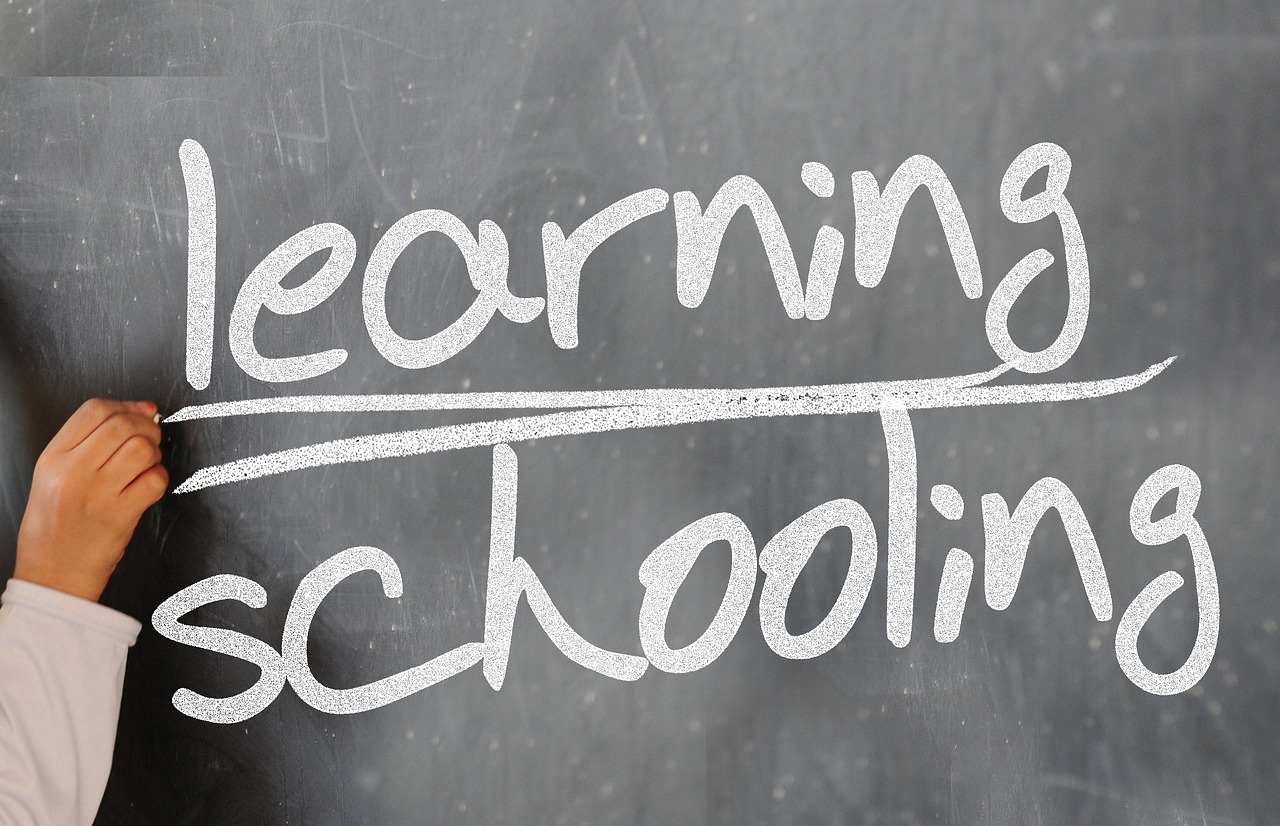
Conclusion: The Transformative Power of Self-Defense
In wrapping up our exploration of anxiety and self-defense training, it's clear that martial arts offer more than just physical techniques; they provide a holistic approach to managing life's challenges. The journey through self-defense training not only cultivates physical strength but also fosters a profound sense of mental resilience. Imagine stepping onto the training mat, feeling the weight of your worries lift with each practiced move. This transformation is not merely about learning to protect oneself; it's about building a fortress of confidence and control that extends far beyond the dojo.
As we've discussed, engaging in self-defense training can be a game-changer for those grappling with anxiety. The structured environment, the focus on discipline, and the camaraderie found in training with others create a supportive atmosphere where individuals can thrive. It's like finding a safe harbor amidst the stormy seas of anxiety, where every punch and kick is a step towards reclaiming power over one's life. The skills learned in these sessions translate into real-world applications, enhancing not only personal safety but also everyday interactions.
Moreover, the mental benefits are just as significant. Through self-defense training, individuals learn to channel their anxiety into focus, transforming uncertainty into a proactive mindset. This shift is akin to turning a chaotic storm into a gentle breeze, allowing for clearer thoughts and better decision-making. The sense of accomplishment that comes from mastering self-defense techniques further reinforces this positive cycle, making it easier to face life's hurdles with a newfound vigor.
In conclusion, the transformative power of self-defense training lies in its ability to address both the physical and psychological aspects of anxiety. By embracing martial arts, individuals not only learn to defend themselves but also embark on a journey of self-discovery and empowerment. As we encourage readers to consider martial arts as a valuable tool for enhancing mental and physical well-being, remember that every step taken on this path is a step towards a brighter, more confident future.
- How can self-defense training help with anxiety?
Self-defense training helps manage anxiety by providing individuals with coping mechanisms, enhancing confidence, and promoting physical fitness, which can alleviate anxiety symptoms. - What types of self-defense techniques are most effective?
Popular techniques include Krav Maga, Brazilian Jiu-Jitsu, and Muay Thai, each offering unique approaches to self-protection and personal empowerment. - Can self-defense training improve my overall fitness?
Yes! Self-defense training improves strength, agility, and coordination, contributing to better overall fitness and health. - Is self-defense training suitable for everyone?
Absolutely! Self-defense training can be adapted for all ages and fitness levels, making it accessible to anyone looking to improve their skills and confidence.
Frequently Asked Questions
- How can self-defense training help with anxiety?
Self-defense training can be a powerful tool for managing anxiety. Engaging in physical activity releases endorphins, which can improve mood and reduce stress. Additionally, learning self-defense techniques can instill a sense of control and empowerment, helping individuals feel more secure and confident in their ability to handle challenging situations.
- What types of self-defense techniques are most effective for beginners?
For beginners, techniques from disciplines like Krav Maga and Brazilian Jiu-Jitsu are often recommended. These styles focus on practical, real-world scenarios and emphasize the importance of situational awareness. They also teach fundamental skills that can be easily learned and applied, making them ideal for those just starting out.
- Is self-defense training suitable for all ages?
Absolutely! Self-defense training can be adapted for individuals of all ages, from children to seniors. Many programs emphasize personal safety and confidence-building, ensuring that everyone can learn at their own pace and level of comfort.
- How often should I train to see benefits?
Consistency is key! Training two to three times a week is generally recommended to see noticeable improvements in both physical skills and mental resilience. Regular practice not only enhances your technique but also reinforces the confidence gained through training.
- Can self-defense training improve my physical fitness?
Definitely! Self-defense training involves a variety of physical exercises that improve strength, agility, and coordination. Over time, participants often notice enhanced overall fitness, which contributes to better health and increased confidence in physical confrontations.
- What should I wear for self-defense classes?
Comfortable athletic wear is usually best for self-defense classes. Look for clothing that allows for a full range of motion. Many schools also recommend wearing supportive footwear, like sneakers, to help with stability and movement during training.
- How does self-defense training promote mental resilience?
Self-defense training fosters mental resilience by teaching focus, discipline, and stress management. As practitioners learn to stay calm under pressure and respond effectively to threats, they develop a stronger mindset that can help them cope with anxiety in everyday life.
- What if I have no prior martial arts experience?
No worries at all! Self-defense classes are designed for all skill levels, including beginners. Instructors typically start with the basics, ensuring that everyone feels comfortable and confident as they progress. It's all about learning at your own pace!
- Can self-defense training help in non-physical situations?
Yes! Self-defense training often emphasizes situational awareness and de-escalation techniques, which can be incredibly valuable in non-physical confrontations. Understanding how to assess situations and respond appropriately can help prevent conflicts before they escalate.


